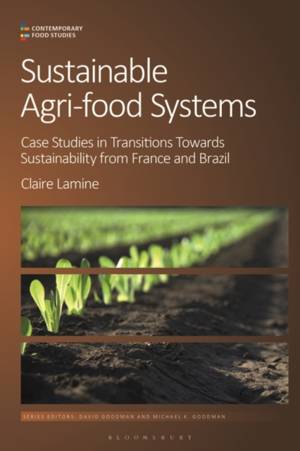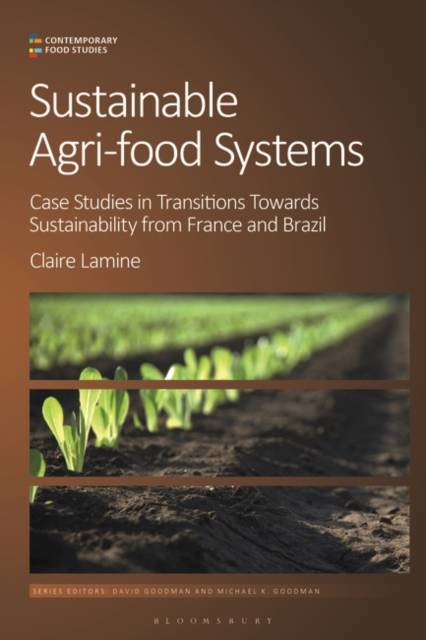
Bedankt voor het vertrouwen het afgelopen jaar! Om jou te bedanken bieden we GRATIS verzending (in België) aan op alles gedurende de hele maand januari.
- Afhalen na 1 uur in een winkel met voorraad
- In januari gratis thuislevering in België
- Ruim aanbod met 7 miljoen producten
Bedankt voor het vertrouwen het afgelopen jaar! Om jou te bedanken bieden we GRATIS verzending (in België) aan op alles gedurende de hele maand januari.
- Afhalen na 1 uur in een winkel met voorraad
- In januari gratis thuislevering in België
- Ruim aanbod met 7 miljoen producten
Zoeken
Sustainable Agri-food Systems
Case Studies in Transitions Towards Sustainability from France and Brazil
Claire Lamine
€ 69,45
+ 138 punten
Uitvoering
Omschrijving
Building on recent scholarship in the sociology of food, Claire Lamine uses in-depth case studies from France and Brazil to compile a critical survey of social science approaches to sustainability transitions in agri-food systems. Lamine addresses the diverse pathways of transition encountered across multiple levels, from the farm through farmers' networks and food chains, to the territorial scale of regions. She also explores the efforts made by those involved in the agricultural world to create new connections between agriculture, food, environment and health, while also taking social equity issues into account.
Lamine's work adopts a comparative perspective to explore the translation of agroecology into government programmes and the specific modes of governance involved in France and Brazil - two countries that pioneer in implementing agroecology yet which differ both in visions and context. Providing new options for understanding the complex issue of agri-food transitions, this book will make an impact for those studying food systems, geography, sociology, politics and agriculture.
Lamine's work adopts a comparative perspective to explore the translation of agroecology into government programmes and the specific modes of governance involved in France and Brazil - two countries that pioneer in implementing agroecology yet which differ both in visions and context. Providing new options for understanding the complex issue of agri-food transitions, this book will make an impact for those studying food systems, geography, sociology, politics and agriculture.
Specificaties
Betrokkenen
- Auteur(s):
- Uitgeverij:
Inhoud
- Aantal bladzijden:
- 224
- Taal:
- Engels
- Reeks:
Eigenschappen
- Productcode (EAN):
- 9781350327610
- Verschijningsdatum:
- 24/03/2022
- Uitvoering:
- Paperback
- Formaat:
- Trade paperback (VS)
- Afmetingen:
- 156 mm x 234 mm
- Gewicht:
- 312 g

Alleen bij Standaard Boekhandel
+ 138 punten op je klantenkaart van Standaard Boekhandel
Beoordelingen
We publiceren alleen reviews die voldoen aan de voorwaarden voor reviews. Bekijk onze voorwaarden voor reviews.









